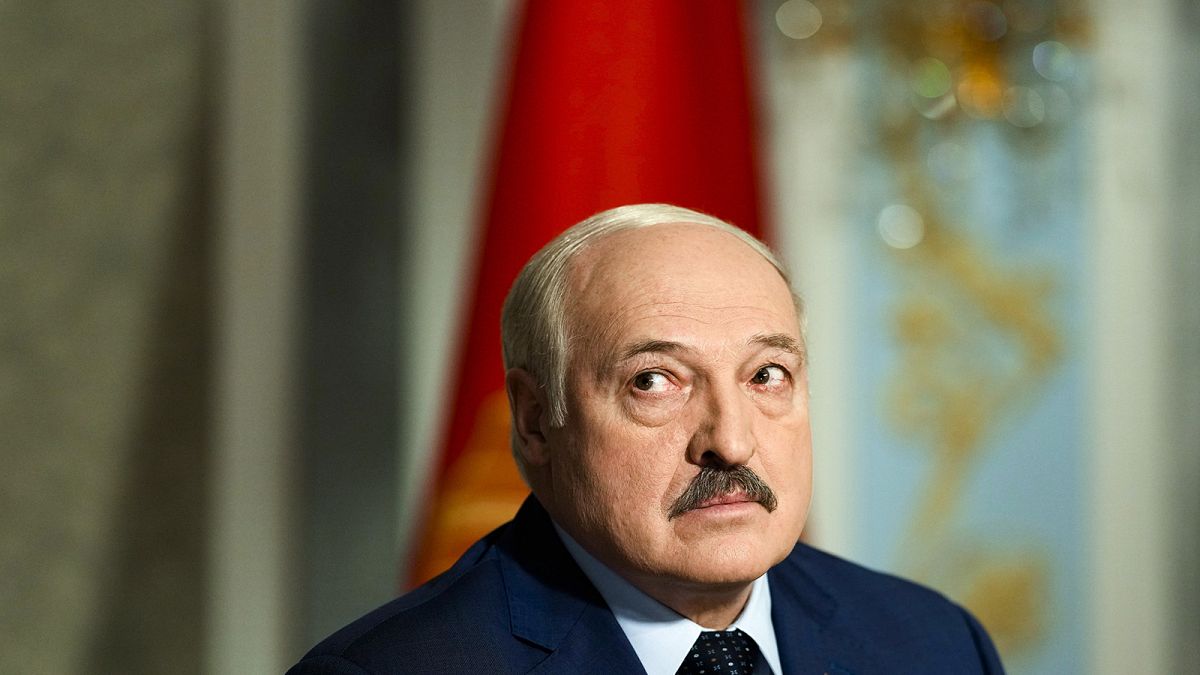Belarus is the last country in Europe still to apply the death penalty, executing several people each year by firing squad.
Belarus has introduced the death penalty for planning an attack or an act of sabotage, dubbed "attempting an act of terrorism", according to a decree issued Wednesday — charges that target many opposition activists, including its exiled leader.
"Belarusian President Alexander Lukashenko has signed the law providing on the possibility of the death penalty for an attempted act of terrorism,” according to the Russian state news agency RIA Novosti.
Until now, only those who were found guilty of committing such an act could face the firing squad.
The law is supposed to come into force in 10 days.
The text notes that no "preparation or attempt" of a crime is punishable by death except for those qualified as "terrorists," another Russian state agency, Interfax, reported.
A former Soviet republic allied with Russia, Belarus is the last country in Europe still to apply the death penalty. The country carries out several executions each year.
The latest change to the law was in preparation ever since the Lukashenko administration was hit by a wave of sabotage acts by activists, who attempted to take out parts of the country's railroad network to make it harder for Russia to deploy forces in Ukraine.
According to Franak Viačorka, spokesman for opposition leader Sviatlana Tsikhanouskaya, Lukashenko is using the law to now intimidate the Railroad Partisans -- a name referencing the Belarusian anti-fascist movement in World War II.
"He is trying to take revenge on everyone and everything that can pose a threat to him personally and his family," Viačorka told Euronews.
"First he introduced trials in absentia. Second, he introduced the confiscation of property of those who fled the country, and finally this death penalty."
"And the partisans, they are not professional military. Most of them are just ordinary people who want changes for their country. But I think people are not afraid anymore," Viačorka explained.
"It is exactly what Belarusians were doing under different occupations in the 20th century."
Last country in Europe with the death penalty
Russia used Belarus as a staging ground to launch its 24 February invasion of Ukraine. Minsk denies involvement in the conflict but acknowledges that its territory was used by Russian forces.
Lukashenko is a close ally of Russian President Vladimir Putin, and his administration is one of the few in Europe to have not introduced any sanctions against the Kremlin since its renewed aggression in February.
He has also been subject to EU and US sanctions for his tacit support of the war in Ukraine, but also his authoritarian rule and violent suppression of democracy.
Since the vast protest movement of 2020 against Lukashenko's re-election — in power since 1994 — many opponents have been charged and arrested for attempting or preparing an act of terrorism.
In March 2021, the Belarusian prosecutor's office announced that Tsikhanouskaya, who was forced into exile in 2020 after a violent crackdown on the protests, was herself under investigation for "preparation of an organised act of terrorism", according to the Belarusian state agency Belta.
Since the 2020 presidential election, in which Tsikhanouskaya amassed surprise popular support, mobilising huge crowds to denounce a vote rigged by Lukashenko, the authorities have tightened their grip considerably, arresting hundreds of people and forcing many opposition leaders and protesters into exile.
"It’s also a reaction to the fact that Interpol and the foreign governments refused to extradite Lukashenko’s opponents. He decided to strengthen the machine of terror that he has been building for 28 years," Viačorka said.
"But we will now launch the procedure of adding all the lawmakers of Belarus -- pocket lawmakers of Lukashenka who supported this law -- to the sanctions list," he explained.
Many opposition figures were sentenced to long prison terms, and independent NGOs and media were banned and branded as extremists.
On Wednesday a new trial began in the city of Grodno against 12 opposition activists, including their alleged leader, Nikolai Avtukhovich.
The 12 are accused of "terrorism" and preparing an act of "terrorism" in an organised gang, according to the human rights NGO Viasna.
The investigators are accusing the group of setting fire to a car and the house of a policeman and then blowing up the car of another in late 2020, in the wake of the historic protests.
Several activists in the group are already in prison. The 59-year-old Avtukhovich has already served more than seven years in jail and now faces a number of other charges, including treason.
According to Viačorka, the latest law is an additional option in Lukashenko's dictatorial toolbox, which he describes as an amalgamation of the worst totalitarian practices in Europe.
"He was learning from the worst tyrants, the worst dictators of Europe. And now we have this synthesis of evil, the hybrid of different dictatorships from different eras," Viačorka said.
